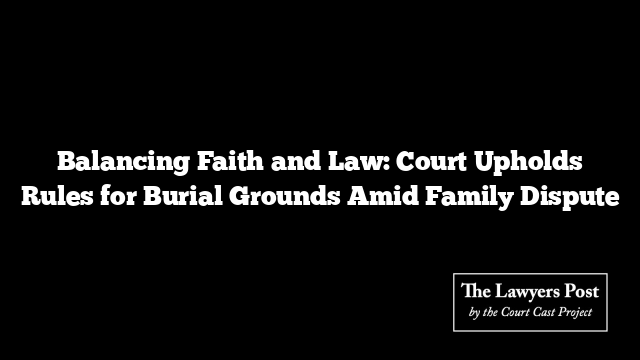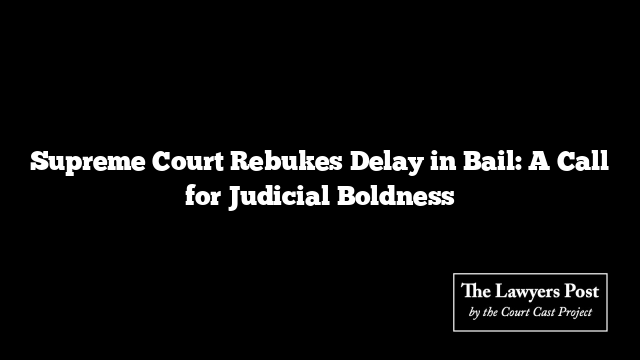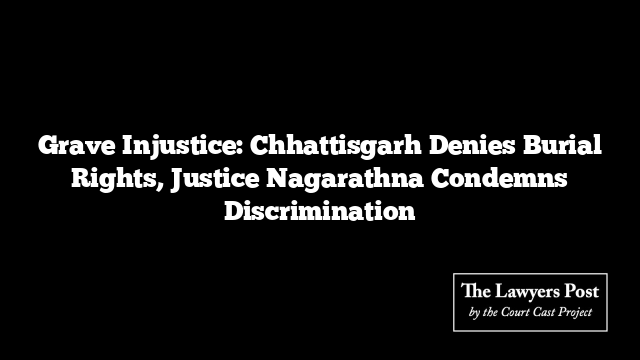In a pivotal case, the Supreme Court navigated the sensitive interplay of religious customs and legal frameworks, delivering a split verdict on the burial of a Christian pastor in Chhattisgarh. At the heart of the matter was whether the deceased’s son could inter his father in either their ancestral village or private farmland, despite the existence of a designated burial ground for Christians 20-25 kilometers away in Karkapal.
Justice B.V. Nagarathna sided with the appellant, permitting burial on private land. In contrast, Justice S.C. Sharma underscored the importance of adhering to designated burial areas, ruling that the burial must occur in Karkapal with logistical and police support to ensure the family could proceed without disruption.
No Unrestricted Right to Burial Location
Justice Sharma’s reasoning emphasized that while the right to conduct last rites is constitutionally protected, it does not extend to an absolute right to choose any burial location. Citing the Chhattisgarh Gram Panchayat (Regulating Places for Disposal of Dead Bodies) Rules, 1999, he noted that graves must be located in areas specifically designated by local authorities.
He highlighted the dual purpose of these rules: maintaining public health standards and respecting the sensitivities of surrounding communities. The State, he argued, is obligated to ensure equitable access to burial grounds for all religious communities, but this does not entail an unrestricted right to decide burial locations.
Constitutional Limits and Responsibilities
Justice Sharma pointed to Articles 21 and 25 of the Constitution, explaining that while they protect personal freedoms and religious practices, these rights are subject to reasonable restrictions under the law. The framework ensures that religious practices, including burial rites, are carried out within the confines of public order and rationality.
He concluded that permitting burial on private land in this case would circumvent the established legal procedures and create unnecessary precedents, especially when a suitable burial ground was already available.
Practical Resolution Amid Disagreement
Despite their differing opinions, the judges reached a practical consensus, allowing the burial in Karkapal with adequate support. This decision considered the unique circumstances of the case, notably the extended period the body remained in a mortuary, and sought to balance the appellant’s sentiments with the broader legal principles at stake.
This ruling reaffirms the delicate balance between individual religious freedoms and the State’s role in ensuring fairness, public health, and harmony in administering burial practices across communities.





